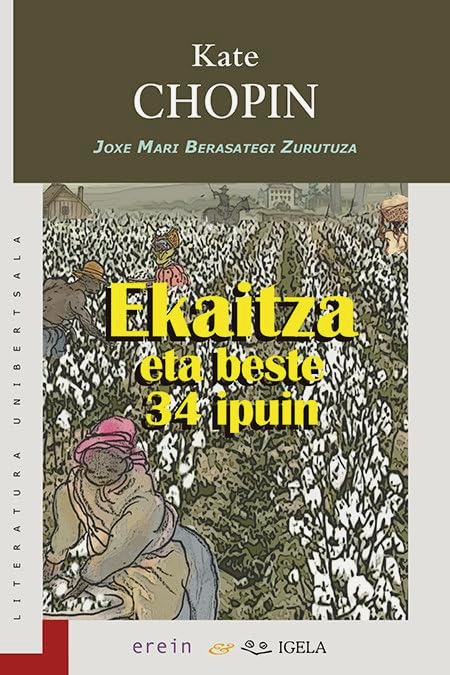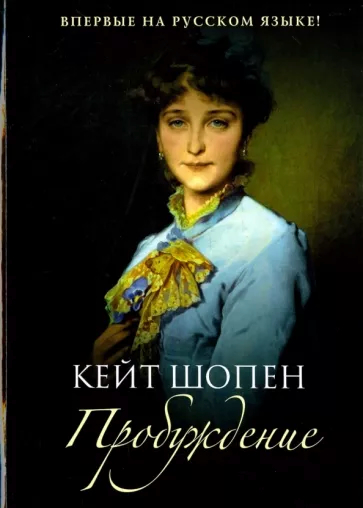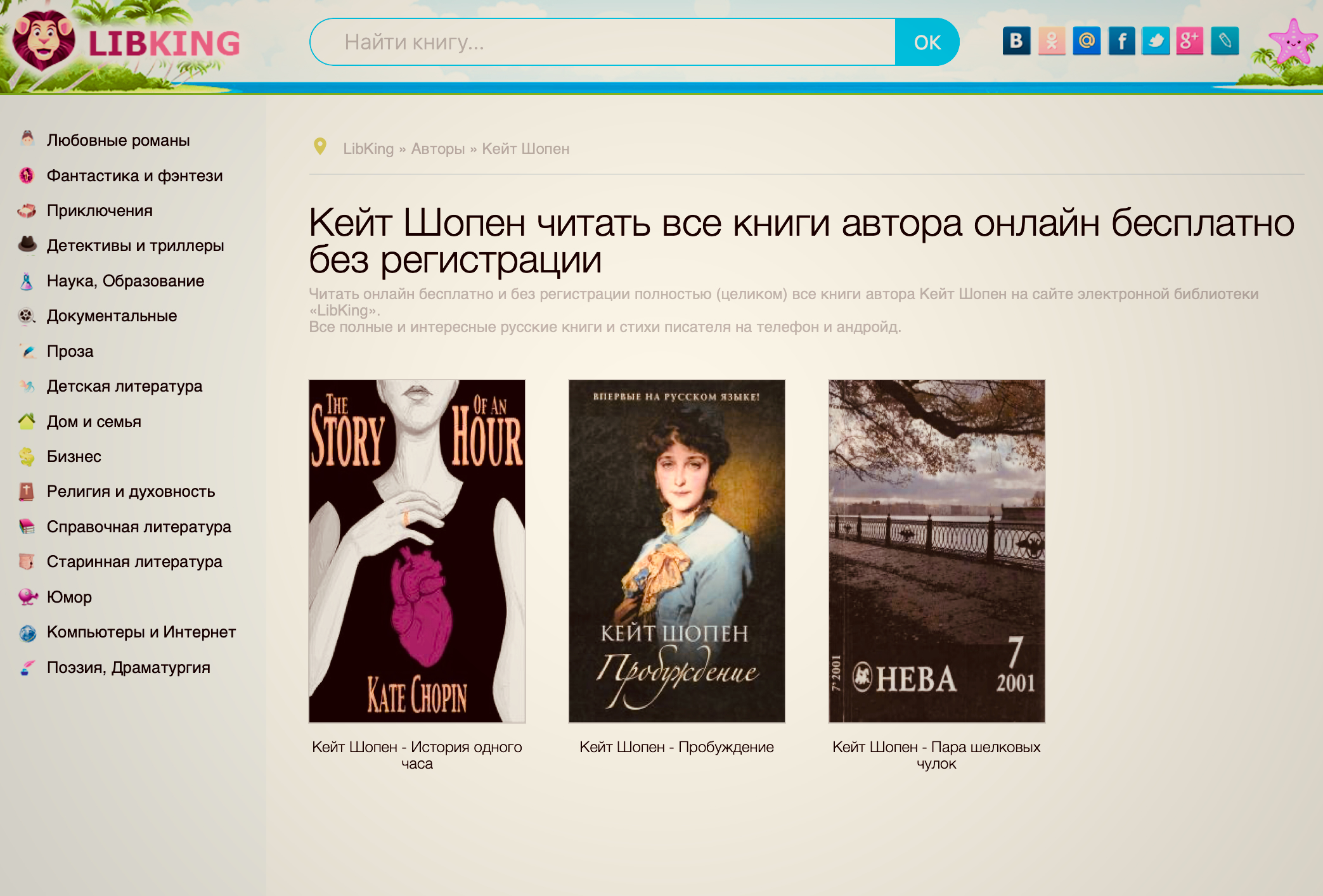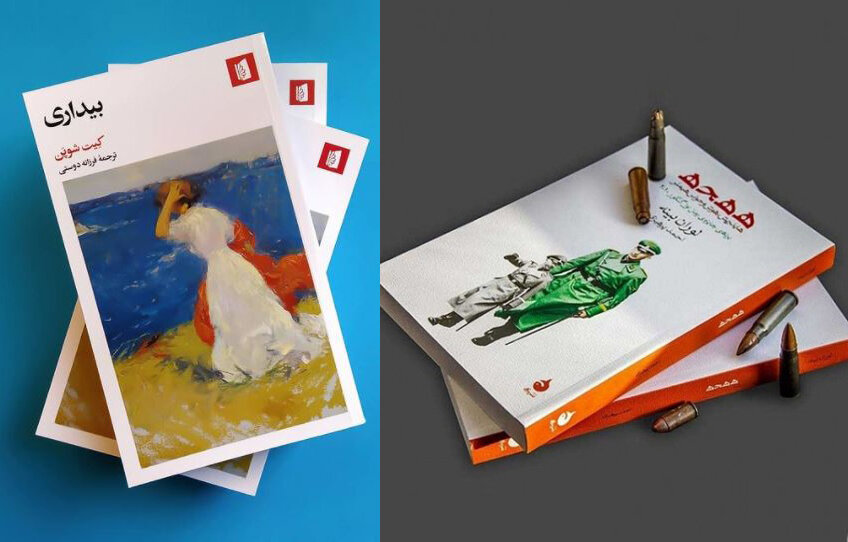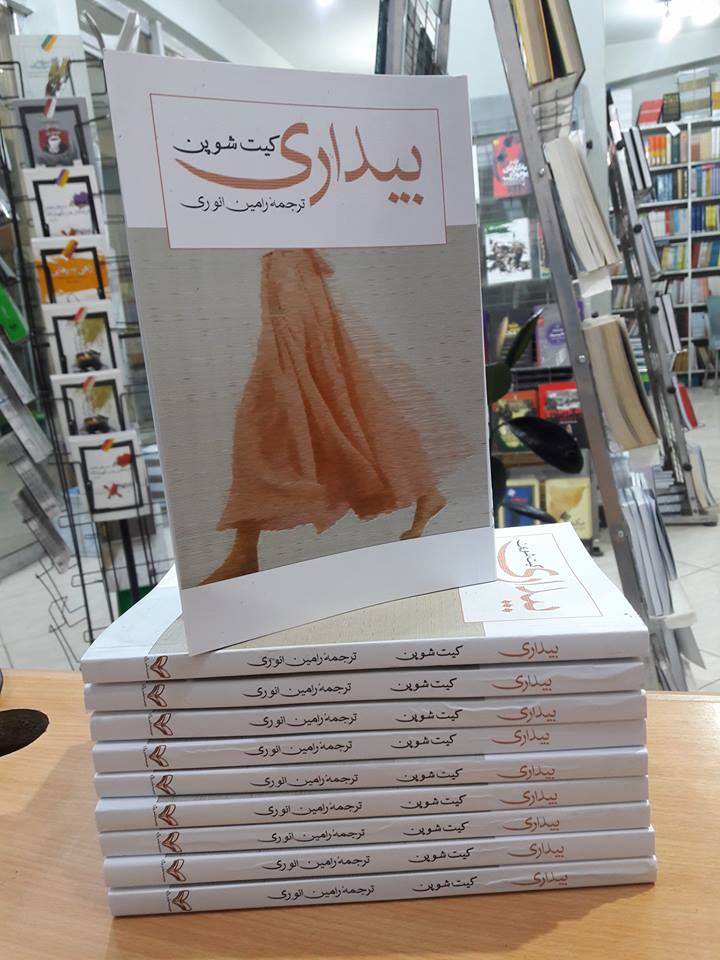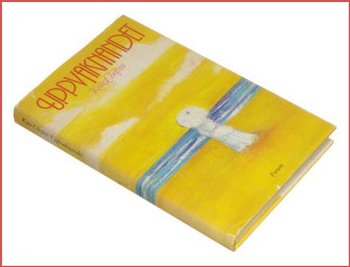By the Editors of KateChopin.org
Translations of Kate Chopin’s Novels and Short Stories
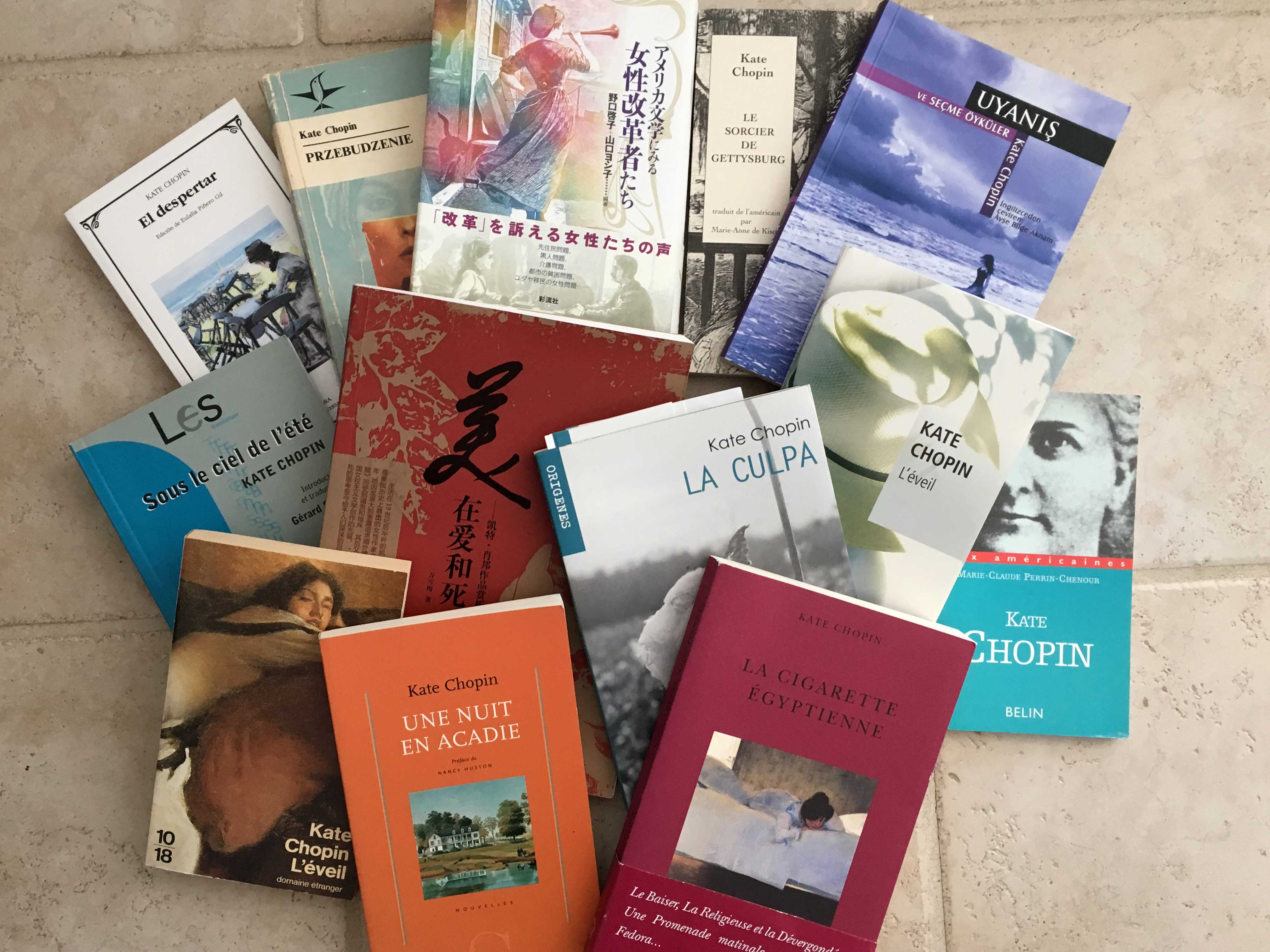
Kate Chopin’s family on her mother’s side was of French extraction, and Kate grew up speaking both French and English. She was bilingual and bicultural—feeling at home in different communities with quite different values—and the influence of French life and literature on her thinking is noticeable throughout her fiction.
Kate Chopin wrote in English, but today her fiction is known throughout the world. It has attracted great attention from scholars and students, and has been translated into other languages, including Albanian, Arabic, Catalan, Chinese, Croatian, Czech, Danish, Dutch, French, Galician, German, Hungarian, Icelandic, Italian, Japanese, Korean, Malayalam, Persian (Farsi), Polish, Portuguese, Russian, Serbian, Spanish, Swedish, Turkish, and Vietnamese. There are pages on the site in three of these languages:
Kate Chopin translations and scholarship into German
Kate Chopin translations and scholarship into Portuguese
Kate Chopin translations and scholarship in Spai[
The Awakening in Croatian
A correspondent tells us that Chopin’s The Awakening was translated into Croatian by Ivan Ott in 2006. The translation (Buđenje) is included in the Croatian edition of “The Most Important Works of World Literature” (Vrhovi svjetske književnosti). Works in the edition are listed by the dates of their being included, with Andre Gide in 1999, Chopin in 2006, and (in 2020) Vladimir Semenovič Vysockij.
Chopin’s “The Storm” and 34 Other Stories in Basque
Erein Argitaletxea in Spain published Kate Chopin’s “The Storm” and 34 Other Stories in Basque in 2022. The stories were translated by Joxe Mari Berasategi Zurutuza who worked with the Basque Service of the Basque Government’s Department of Education and was head of the Basque Service in the Provincial Council of Álava.
Пробуждение: Russian Translations of Kate Chopin’s Works
We are extremely grateful to Julie Loison-Charles, who is a Senior Lecturer at the Université de Lille in France, for guiding us to translations of Kate Chopin’s works into Russian. We have for many years been able to document translations into twenty-some languages. But we have had difficulty finding Russian translations. Professor Loison-Charles, a specialist in translation who has worked on Kate Chopin and Vladimir Nabokov, guided us to Russian websites showing that three different translators have worked on “The Story of an Hour,” other short stories, and — in 2017 — The Awakening, translated by E. Bogdanova.
The book with the translation of Пробуждение (The Awakening) also includes these short stories:
За ручьем “Beyond the Bayou”
Мэ`эм Пелажи “Ma’ame Pélagie”
Ребенок Дезире “Désirée’s Baby”
Приличная женщина “A Respectable Woman”
Поцелуй “The Kiss”
Пара шелковых чулок “A Pair of Silk Stockings”
Медальон “The Locket”
Размышление “A Reflection”
There are many reader comments on the publisher’s Awakening website. Here are a few from 2018, 2019, and 2020 (translated from the Russian by Google and verified by Monique Oyallon). One writes:
“When you read in the annotation of a book that you have never heard of (although it was written at the end of the 19th century!), ‘one of the greatest works in American literature,’ then doubts about the adequacy of such an assessment, you see, are quite acceptable. Imagine my amazement (as some reviewer would have written in a similar situation at the end of the 19th century) when it turned out that this was indeed the case.
“Of course, this story may shock only [especially conservative people] now, but this in no way detracts from its outstanding literary merits. If we try to draw parallels with similar works, then ‘The Awakening’ is undeniably better than ‘Lady Chatterley’s Lover’ (written much later) and may well ‘compete’ with ‘Madame Bovary’, which appeared, however, much earlier.”
Other readers responded to Chopin’s work in ways similar to those of readers around the world since the 1970s.
One writes, “Even though I read the novel a few weeks ago, I still sometimes return to it in my mind, I’m very glad that I met this author.”
Others consider Chopin’s works “partially autobiographical,” or they are impressed by how Chopin “paints portraits of women of that time as individuals with their own wants and needs,” or they like or dislike Edna Pontellier, or they compare The Awakening with Anna Karenina, Madame Bovary, or Martin Eden, or they complain about or praise the quality of the translation.
Many readers like the short stories. One says the story “about a woman who suddenly has 15 dollars is completely timeless.”
You can see these and other comments from readers in the original Russian.
A Professor in Russia Responds to This Announcement
Professor Irina Morozova tells us: “In 1993 I was the first person in Russia who wrote an article on Kate Chopin’s works, and my colleague Olga Golubkova translated two short stories according to my request (“The Story of an Hour” and ” A Respectable Woman”). Unfortunately, it was a journal of Udmurt State University (Izhevsk), so not many people read it. But I am proud of being the first person who brought Chopin into the Russian cultural sphere. My husband once met Emily Toth in the US, and she was so generous to give her biography of Kate Chopin for me. Now I am professor of literature at the Russian State University for the Humanities (in Moscow), and my professional interests have changed a little bit, but I do not forget about Kate Chopin, one of my favourite writers.”
Professor Morozova has published articles and books about American writers, including The “Southern Myth” in Women’s Writings of the Old South, published in St. Petersburg. She has had a Fulbright research grant at the University of Central Florida.
Translation of The Awakening Wins Iranian Literary Prize
The English-language Persian Times in Tehran, Iran, announces that the Persian translations of HHhH and The Awakening share the Abolhassan Najafi Award.
The newspaper article notes: “The Abolhassan Najafi Award is a private Iranian literary prize that is given to a Persian translator of a novel or short story collection every year. The award was established in the name of Abolhassan Najafi (1930-2016), a linguist and translator of French literature, by his family and the Book City Institute in 2016.”
The article adds, “Translated into Persian by Ahmad Parhizi, HHhH has been published by the Mahi publishing house in Tehran. HHhH stands for the German sentence ‘Himmlers Hirn heisst Heydrich’ (‘Himmler’s brain is called Heydrich.’) The most lethal man in Hitler’s cabinet, Reinhard Heydrich seemed indestructible until two exiled operatives, a Slovak and a Czech, killed him and changed the course of history.”
It continues, “Published by Ibdgol, The Awakening has been rendered into Persian by Farzaneh Doosti. Set in New Orleans and on the Louisiana Gulf coast at the end of the 19th century, the plot centers on Edna Pontellier and her struggle between her increasingly unorthodox views on femininity and motherhood with the prevailing social attitudes of the turn-of-the-century American South.
“When first published in 1899, The Awakening shocked readers with its honest treatment of female marital infidelity. Audiences accustomed to the pieties of late Victorian romantic fiction were taken aback by Chopin’s daring portrayal of a woman trapped in a stifling marriage, who seeks and finds passionate physical love outside the confines of her domestic situation.”
A New Edition of Kate Chopin’s Short Stories Translated into French
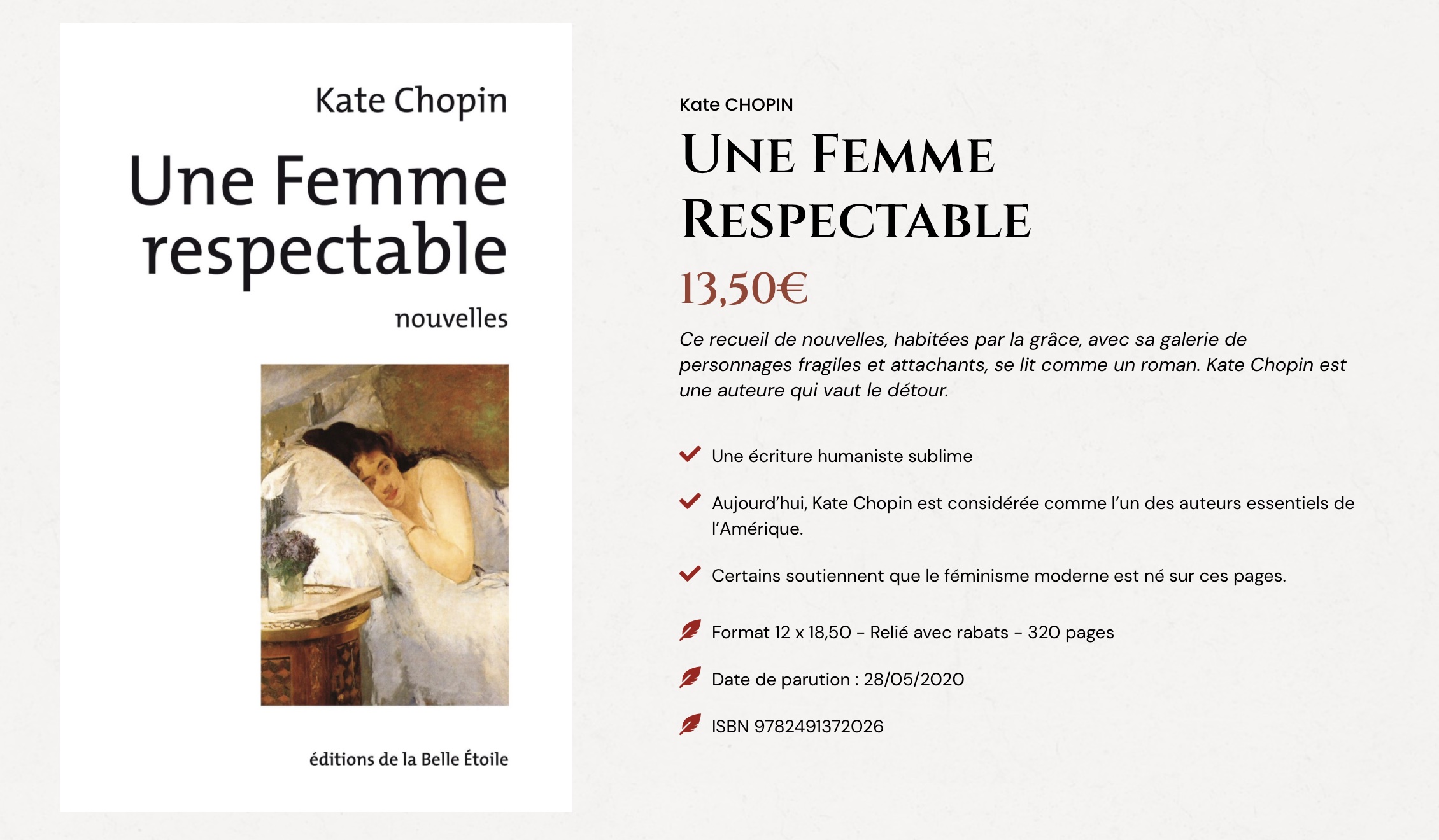
Editions de la Belle Etoile has published Une femme respectable, a collection of 25 short stories by Kate Chopin translated into French.
Philippe GUYOT-JEANNIN at Editions de la Belle Etoile writes: “We have chosen the most beautiful stories in our opinion among those that had already been translated into French (most that were out of print). And we have made available for the first time translations of three other stories: ‘A Shameful Affair,’ ‘Ozème’s Holiday,’ and ‘A December Day in Dixie.’
“We consider this book to be the essential French reference book on the short stories of Kate Chopin.”
The short stories in the collection:
L’enfant de Désirée
Visite à Avoyelles
L’histoire d’Elisabeth Stock
Le médaillon
La guérison
Les lilas
À l’amie de ma jeunesse à Kitty
Le rêve d’une heure
Le divorce de Mme Célestin
Une femme respectable
Au bal Cajun
Azélie
Une paire de bas de soie
Les lettres
Une affaire honteuse
Deux étés, deux âmes
Le sorcier de Gettysburg
La raison de Mme Mobry
Les vacances d’Ozème
Les figues mûres
Une suggestion hypnotique
Au-delà du bayou
Un jour de décembre à Dixie
La marraine
Le baiser
Fedora
L’aigle blanc
L’orage (Une suite d’« Au bal cajun »)
The Awakening Published in Iran
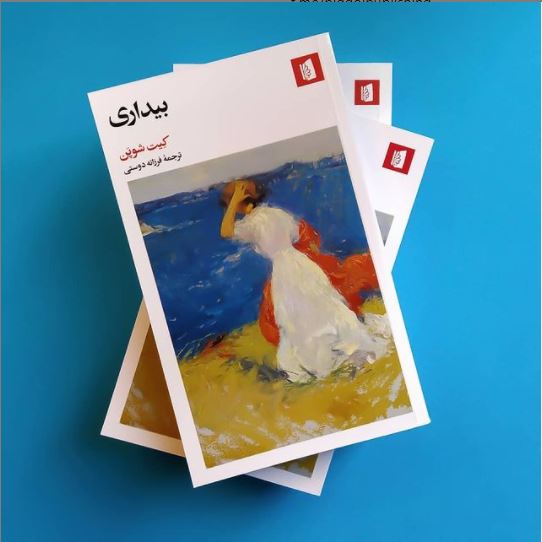
Farzaneh Doosti in Tehran sends us this message:
“I am an Iran-based university lecturer, researcher and translator holding a PhD in English Literature. I have been teaching Chopin’s stories for years and now I am overjoyed to inform you that my translation of Kate Chopin’s The Awakening is now available and released by one of the bestselling publishers in Iran: Bidgol Publishing.
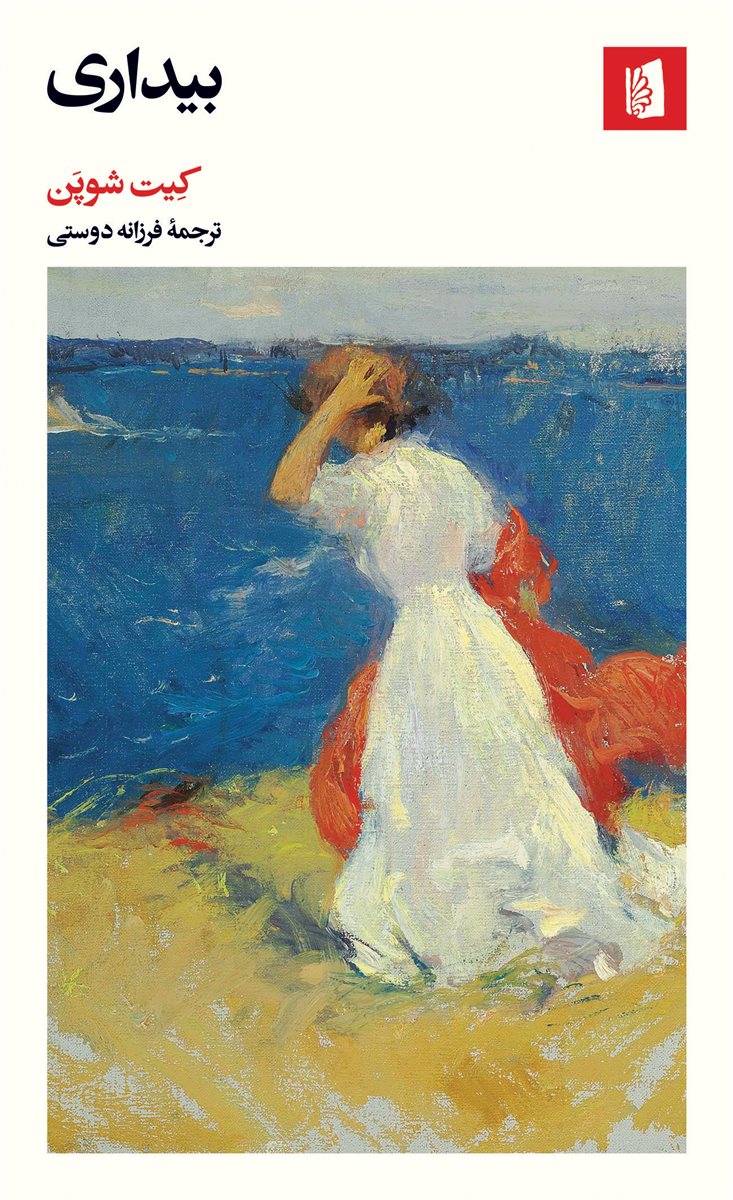
All of Kate Chopin’s Short Stories in Spanish
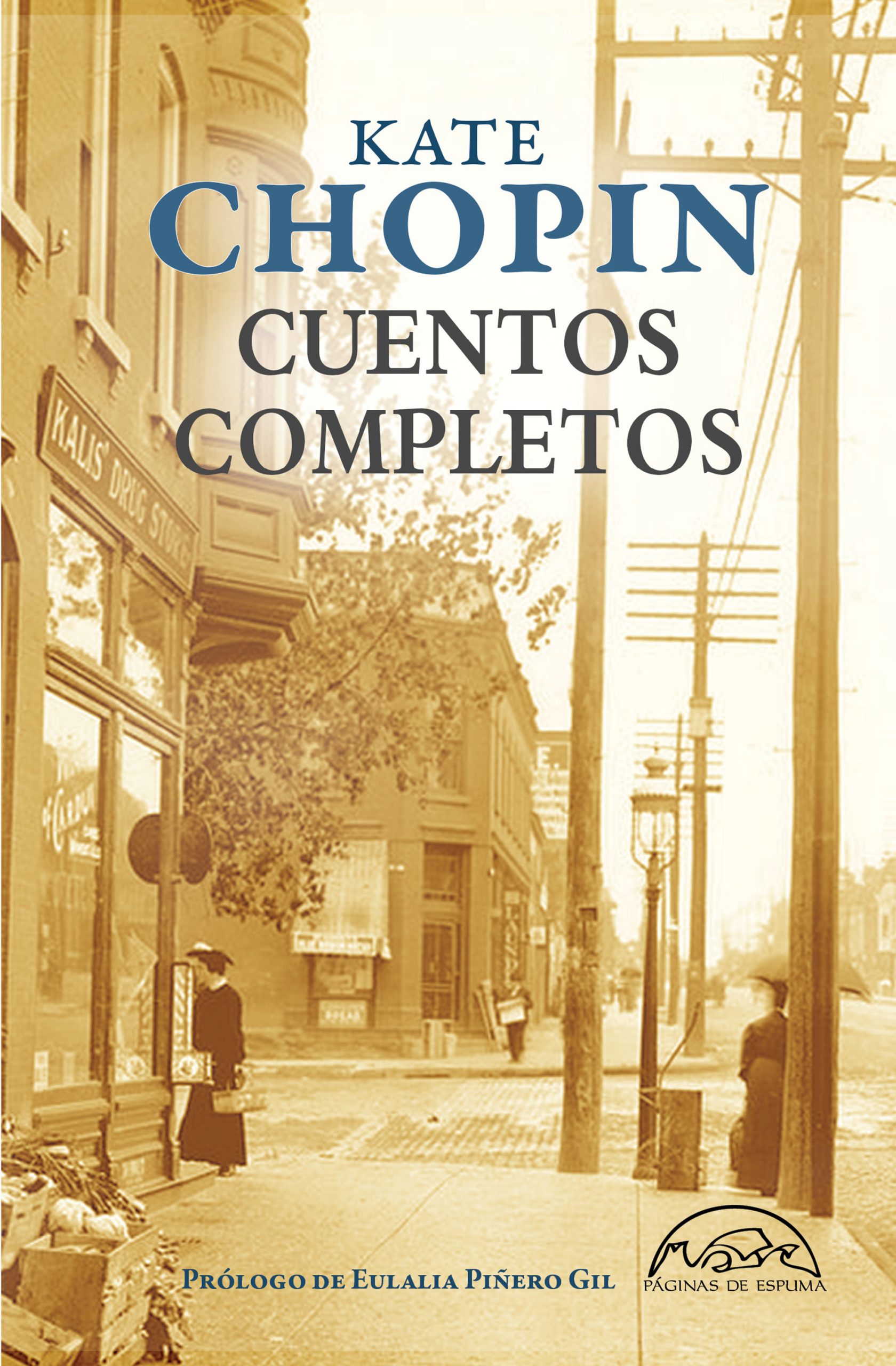
A friend in Madrid tells us, “Kate Chopin’s complete short stories, Cuentos Completos, have been published in Spanish for the first time by Páginas de Espuma Publishing House (2020). The publisher and the translation team—Emma Cotro, Maite Fernández Estañán, Eva Gallud, and Juan Carlos García—deserve credit for their excellent work.
“This version of Chopin’s short stories in Spanish includes a table of contents, an index, and a prologue by Kate Chopin scholar and translator Eulalia Piñero Gil.”
Eulalia Piñero Gil is Professor of American Literature and Gender Studies of the Universidad Autónoma of Madrid, Spain, where she teaches American Literature courses. She is the author of the translation and critical edition of Kate Chopin’s The Awakening/El despertar (2012). She has co-edited Visions of Canada Approaching the Millennium (1999),Voices and Images of Women in 20th Century Theater. Anglo-American Women Playwrights (2002), Women and Art: Visions of Change and Social Development (2010) and Breaking a Sea of Silence: Interdisciplinary Reflections on Gender Violence (2013). She has authored several peer-reviewed articles on Kate Chopin and other American women writers. She is the President of the Spanish Association for American Studies (SAAS).She edits and updates this website’s bibliography page in Spanish.
Kate Chopin in Afghanistan
Ramin Anwari, a Persian-speaking writer in Afghanistan, tells us that his translation of Kate Chopin’s The Awakening into Persian (Farsi) is now on sale in Afghanistan.
The discounted cost per copy in the Kabul market is 200 Afghan Afghani, he says, which is around $4 in United States currency.
The publisher of the book is called “Nashr-e-Wazha” or “Wazha Publication House,” and it is a family-run private entity. It was founded two years ago and has so far published around 30 titles independently, and another 40-plus titles in partnership with some universities.
An Awakening Translation into Icelandic
Jón Karl Helgason tells us that he is the translator of The Awakening into Icelandic: Sálin vaknar.
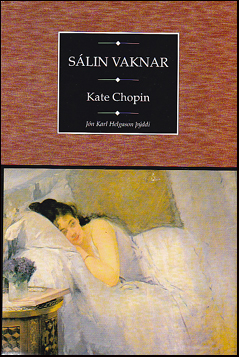
“It was my first translation from English”, he reports, “but I have also translated books by Dan Brown, Paul Auster, Julian Barnes and others. I started the Kate Chopin work as a part of my Ph.D. studies in Comparative Literature at the University of Massachusetts in late 1980s. The translation was read in an Icelandic National Broadcasting program in 1990 and then finally published (a revised version) in 1997.”
The Awakening in Catalan
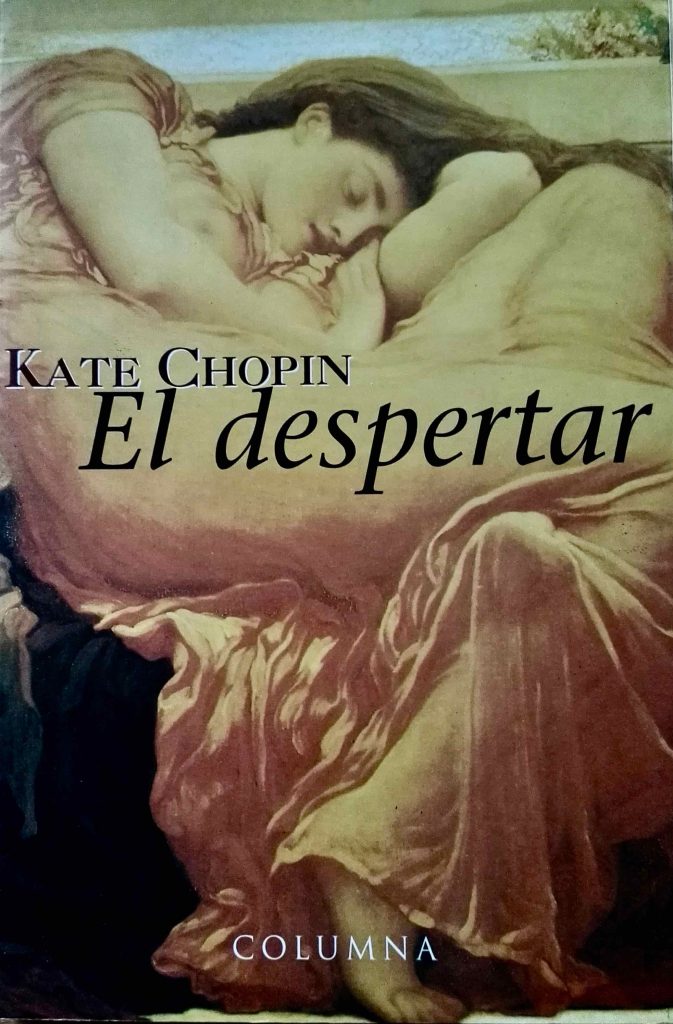
Gabriela Paco tells us that The Awakening has been translated into Catalan and sends us this cover photograph. The novel was translated by Ernest Riera i Arbussa and first published in Barcelona by Columna in 1997. The translation is titled El despertar.
That brings to 23 the number of languages into which the novel as been translated. We are grateful to Gabriela Paco for creating the photograph and sending us the information.
Translations that we have been able to document so far were into Albanian, Arabic, Catalan, Chinese, Czech, Danish, Dutch, French, Galician, German, Hungarian, Icelandic, Italian, Japanese, Korean, Malayalam, Persian (Farsi), Polish, Portuguese, Serbian, Spanish, Swedish, Turkish, and Vietnamese..
كيت شوبان
A Third Kate Chopin Short Story in Arabic
We are grateful to hear from Professor Lina Ibrahim at Bayan University College, Muscat, Sultanate of Oman, who tells us that she has translated “Regret,” Kate Chopin’s short story, into Arabic. It is published in al-adab.com, an online literary magazine. You can read “Regret” and Lina Ibrahim’s earlier translations, “The Story of an Hour” and “Désirée’s Baby,” on the al-adab.com website.
We asked Professor Ibrahim why she chose to translate these three stories. She replied:
“Each story struck a chord with me. The three women: Désirée, Louise, and Mamzelle Aurélie represent three types of women caught up in situations that other women can relate to until the end of time.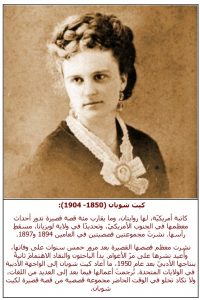
“Désirée faces what so many women face: If there’s a problem, blame it on the woman. Her husband, recognizing the color of his son, is unable to blame anyone but his young beautiful wife. As a man, he thinks of himself as infallible and believes the woman must be responsible for a sin and must be punished (for a crime, it turns out, she did not commit)
“Louise represents miserable women caught in a traditional marriage. They have everything, yet they aren’t happy. The moment of revelation that comes to Louise while grieving the death of her husband brings with it a state of ecstasy. Now she is free, now she understands that her marriage was a prison from which she is finally released. I do believe that many women nowadays find themselves in similar marriages.
“Mamzelle Aurélie is a spinster by choice. She realizes too late that the outcome of her decision to not marry is a life of loneliness. What I relate to in the story is her realization that the children made her aware of what she was missing—not the absence of a male partner, not marriage as an institution, but the joy that comes with having children, connecting with and taking care of them. Here lies the regret of her choice.”
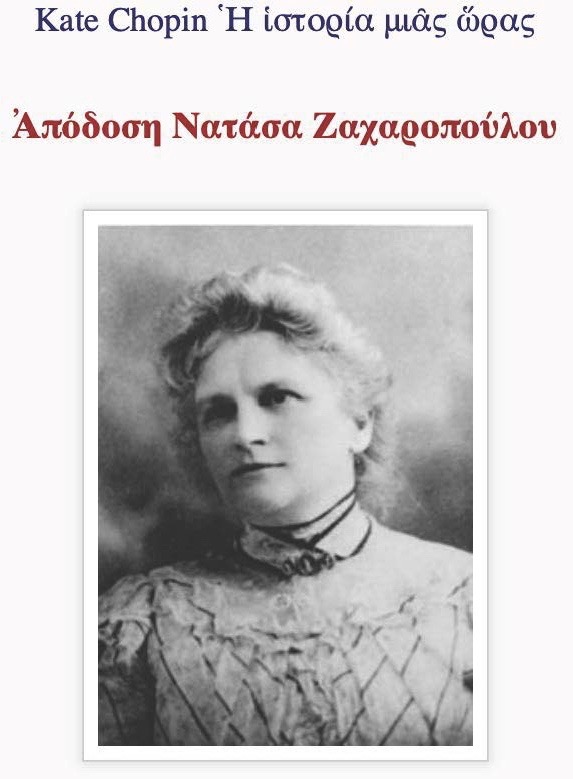
“The Story of an Hour” in Greek
Natasha Zacharopoulou tells us that she has published her translation of “The Story of an Hour” into Greek. (Scroll down a little and click on the photo of Kate Chopin.)
She adds, “I’ve also done a translation of ‘The Night Came Slowly,’ and it will appear on the website. It’s a site about literature. There are short stories and poems by Greek writers, and also others from the world of literature, translated into Greek by me or other Greek writers.
“I am a writer too. I write poems, short stories, and novels. Nine books of mine have been published here in Greece. I also translate ancient Greek poetry into new Greek (e.g. Sappho, Simonides, Alkman, etc).”
Of Special Significance: The First Translation of The Awakening into Danish
Keith Bergman at the Danish publisher Forlaget Hetland tells us that “we have published The Awakening for the first time in Danish. The translation was done by Henrik Torjusen, a PhD student from Oslo University.”
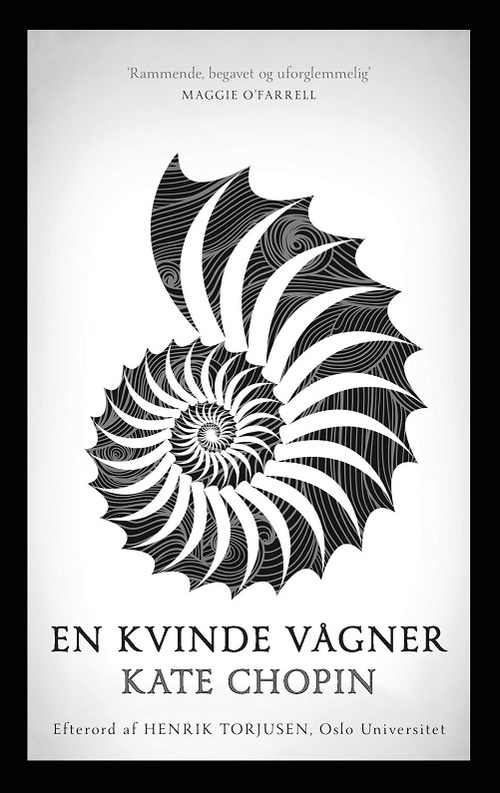
Oslo University has a special significance for Chopin readers, because it was Per Seyersted, formerly the Director of the American Studies Institute at the university, who in 1969 published Kate Chopin’s Complete Works—along with a new biography—and helped transform Kate Chopin into one of America’s essential authors.
Seyersted’s mother had been a “women’s rights leader in Norway,” his current biographer, Emily Toth, tells us. He had done a Master’s degree at Harvard University, where he wrote a paper about Chopin for Cyrille Arnavon, a visiting professor from Paris who had translated The Awakening into French in 1952.
Arnavon and Seyersted are central figures in the revival of Kate Chopin’s fiction.
“Hetland Books,” The publisher’s website says, “is the English name of the Copenhagen-based independent publishing house Forlaget Hetland. Hetland Books’ aim is to publish translated works from English to Danish.
“Our books often have a North Atlantic feel to them, reflecting the provenance of the publisher.
“Hetland Books takes its name from the point of the British Isles closest to the Kingdom of Denmark. Faroe, an Atlantic archipelago and part of the Kingdom of Denmark, is only 200Km north of the Shetland Islands. Their name for Shetland — is Hetland.”
Charlie: A New Translation of Sixteen Kate Chopin Short Stories into French
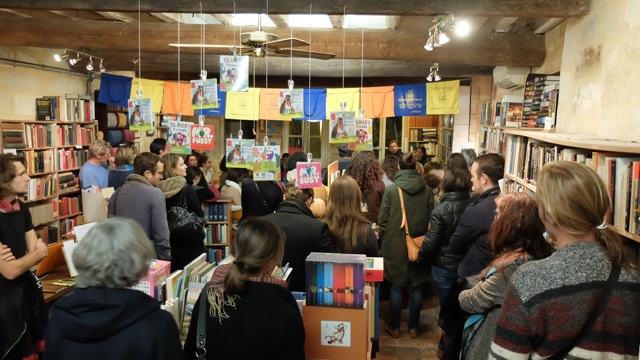
Editions Eternel: “Les classiques oubliés de la littérature” [The Forgotten Classics of Literature] has published Charlie, a translation of sixteen Kate Chopin short stories into French, by Camille Vourc’h.
Ms. Vourc’h writes: “Dans chacune de ces seize nouvelles, c’est le souffle même de la vie qui est écrit, il s’anime quand la passion est trop forte pour les convenances et souvent, il fait gagner l’émancipation.” [In each of these sixteen stories, it’s the spirit of life itself which is described; that spirit moves in people when emotions are too powerful for what is socially acceptable, and often it results in their breaking free.]
Camille Vourc’h owns “Camili BOOKS & TEA,” an English bookshop and tearoom in Avignon, France.
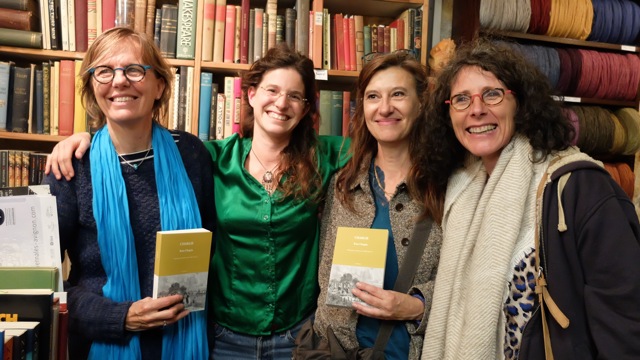
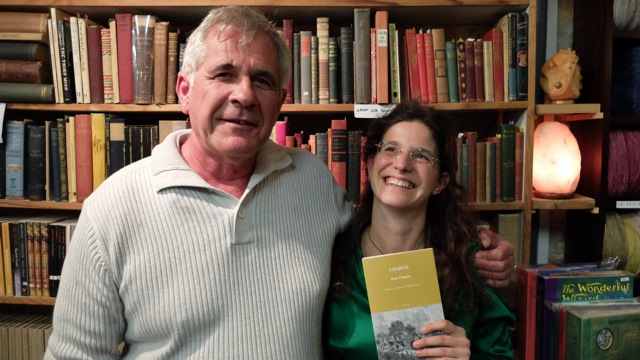
François Chopin is a cousin of Kate Chopin’s great-granddaughters Susie Chopin, Gerri Chopin Wendel, and Annette Chopin Lare. He lives in France near Avignon and attended the reception at Camili BOOKS & TEA celebrating the publication of Charlie. We are grateful to him for the photo showing the reception, the one showing Camille Vourc’h (in green) with people at the reception, and the one showing himself with Camille.
كيت شوبان
Two Kate Chopin Short Stories in Arabic
We are grateful to hear from Professor Lina Ibrahim at Bayan University College, Muscat, Sultanate of Oman, who tells us that she has translated two Kate Chopin short stories into Arabic. Both are published in al-adab.com, an online literary magazine. You can read “The Story of an Hour” and “Désirée’s Baby” on the al-adab.com website.
A 2016 Translation of At Fault into Spanish
Defausta Editorial in Spain has published a new translation of Kate Chopin’s 1890 novel At Fault into Spanish. The novel was translated by Susana Prieto Mori. The volume was published in 2016.
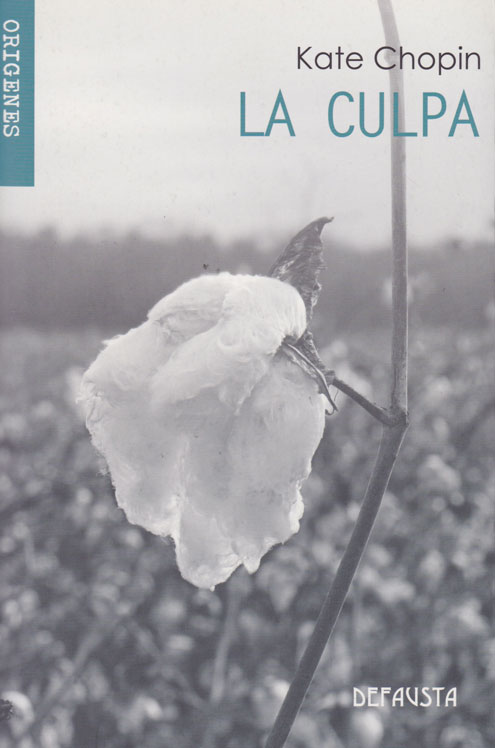
A Translation of Kate Chopin’s Poems into French
Gérard Gâcon’s volume, Sous le ciel de l’été, was published by l’Université de Saint-Étienne in 2009.
The original English and the French translation of each of the forty-six poems are presented side by side, and the volume contains an introduction that includes a discussion of Chopin’s prose works “Athénaïse,” “Charlie”, “The Story of an Hour”, and “The White Eagle.” After the poems is a translation of “The White Eagle” into French, an annex with translated passages from Chopin’s 1894 diary and her 1897 dedication to Ruth McEnery Stuart in a copy of Bayou Folk, along with excerpts from an interview Chopin’s son Felix gave in 1949. The volume concludes with a brief chronology of Chopin’s life and a short bibliography.
Gérard Gâcon has translated Shakespeare into French as well as work by Robert Herrick, Andrew Marvell, Lewis Carroll, and others British writers. Some of his translations are published in Paris by Gallimard in the prestigious Pléiade series.
Here is Kate Chopin’s last poem, written in 1900:
To the Friend of My Youth: To Kitty
It is not all of life
To cling together while the years glide past.
It is not all of love
To walk with clasped hands from first to last.
That mystic garland which the spring did twine
Of scented lilac and the new-blown rose,
Faster than chains will hold my soul to thine
Thro’ joy, and grief, thro’ life–unto its close.
And here is Gâcon’s translation of the poem:
A 2011 Brazilian Translation of Kate Chopin Short Stories
We received this message from Beatriz Viégas-Faria, a professor at the Universidade Federal de Pelotas in Brazil:
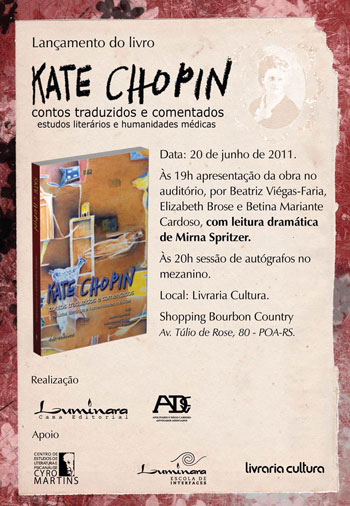 “I’m writing to let you know about a new book with translations of twelve of Kate Chopin’s short stories that launched on June 20, 2011, in Porto Alegre, Brazil.
“I’m writing to let you know about a new book with translations of twelve of Kate Chopin’s short stories that launched on June 20, 2011, in Porto Alegre, Brazil.
“Each of the twelve short stories (in the original English and in Brazilian Portuguese) is followed by two essays–one from a PhD in literature and one from a medical professional (psychiatrists and/or psychoanalysts and one specialist in public health, a nationally renowned fiction writer).
“Other features of the book: one essay presents the translations and the translation process, another presents the literary importance of the short stories, and another presents the importance of Kate Chopin as an example of how literature can help qualify and make more human the relation between a medical doctor and a patient. There is also a text written by two of the translators on Kate Chopin’s life and work.”
“Launching night in Porto Alegre was a big success,” Beatriz Viégas-Faria adds, “with more people than seats for the dramatic reading of ‘A Pair of Silk Stockings’ by actress/professor Mirna Spritzer (the Federal University of Rio Grande do Sul). And then we signed books until 10 PM, when the book store closed.
“That was June 20, and then on Sept. 16, in São Paulo, we had another session of book signing, and actress Cris Nicolotti (stage and TV actor from São Paulo) was in charge of the dramatic reading of that same story. We had a good crowd attending, so we again had people lining up to have their books signed.
“On Oct. 27, 2011, in Caxias do Sul (state of Rio Grande do Sul, again), we’ll have yet another book signing session, with dramatic reading by a local actor. And then on Nov. 10, the book signing is scheduled to take place in the traditional and nationally renowned (57-year-old) Book Fair of Porto Alegre. This fair is absolutely packed with people for its 15 days of duration, and every year it opens on the last Friday of October. Our famous Feira do Livro, with its typical outdoor stands under the Spring blossoms, rain or shine, opened every year, even during the times of censorship during the political regime of military dictatorship in our country.”
A 2011 French Translation of Kate Chopin Short Stories–With a Different Emphasis
Éditions Interférences in Paris published in 2011 a new translation of Kate Chopin short stories. The volume is titled Le Sorcier de Gettysburg, and the translations were done by Marie-Anne de Kisch.
The foreword to the volume notes that “at the end of the nineteenth century, in a Louisiana still traumatized by the Civil War, [Kate Chopin] described with subtlety and even audacity the contradictions and ambiguities of the female soul. In Le Sorcier de Gettysburg, as in Une Nuit en Acadie, there is another aspect of her work on display. Although women maintain an important place in the stories, the principal characters this time are Louisiana and its inhabitants.”
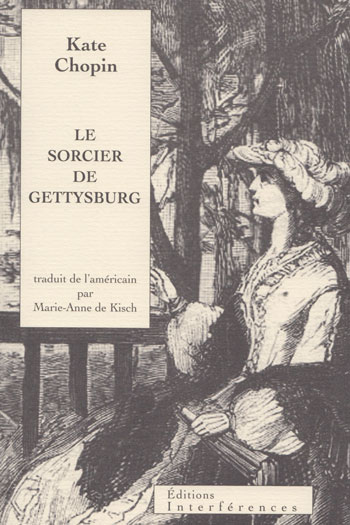
The book includes translations of eighteen Chopin stories, arranged in this order: “The Maid of Saint Phillippe,” “A Wizard from Gettysburg,” “Ma’ame Pélagie,” “The Locket,” “The Return of Alcibiade,” “Mrs. Mobry’s Reason,” “A Visit to Avoyelles,” “The Lilies,” “Mamouche,” “Polydore,” “Dead Men’s Shoes,” “Loka,” “The Bênitous’ Slave,” “Old Aunt Peggy,” “Nég Créol,” “Vagabonds,” “Ripe Figs,” and “A Reflection.”
Éditions Interférences has also published translations of works by Ambrose Bierce, Louisa May Alcott, Dorothy Scarborough, and Charles Dickens.
Translations of The Awakening
The Awakening has been translated into many languages. It first appeared in a French translation by Cyrille Arnavon in 1952.
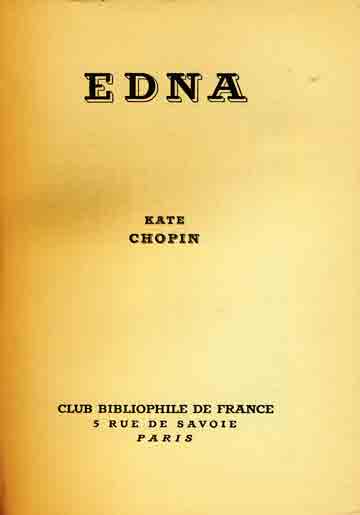
That edition has illustrations by André Hubert. Here’s Edna and Robert:
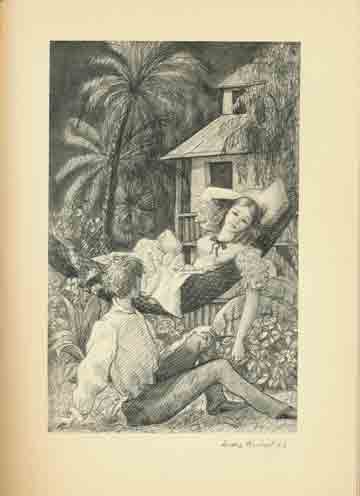
And here is the first page of the 1952 French translation:
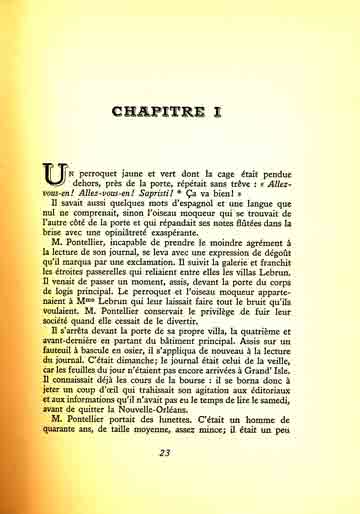
It has also been translated again into French and into other languages. If you know of a translation into still another language, would you contact us? Some older book covers:
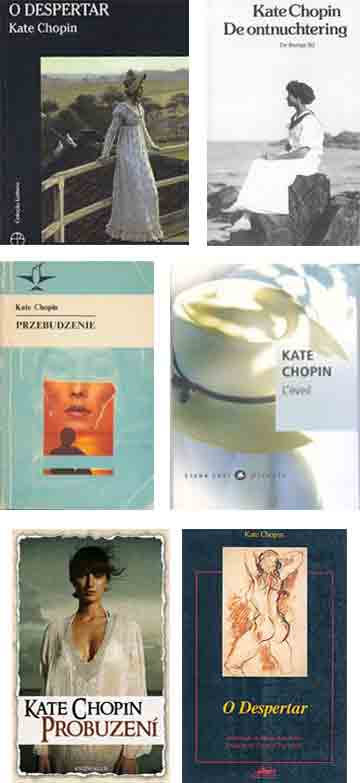
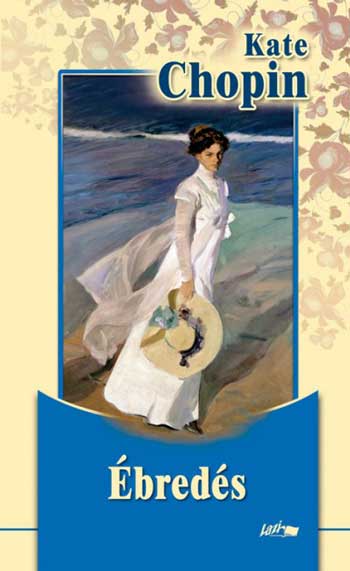
A 2010 translation into German:
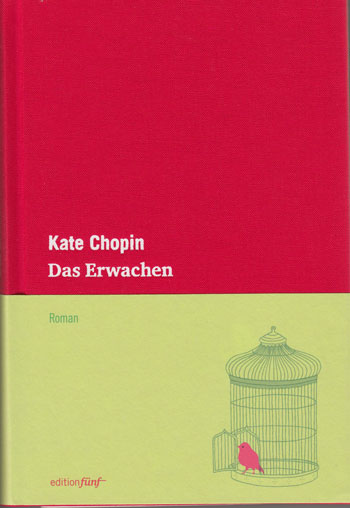
In addition, our thanks to Noriko Fujikawa at Tsuda College in Tokyo, Japan, for telling us about a Japanese translation of The Awakening. “The book,” Noriko writes, “is called Mezame (which means awakening in Japanese). It was translated by Yoshiko Takita and published by Arechi Shuppansha in 1995 (with a 2nd edition in 2004).”
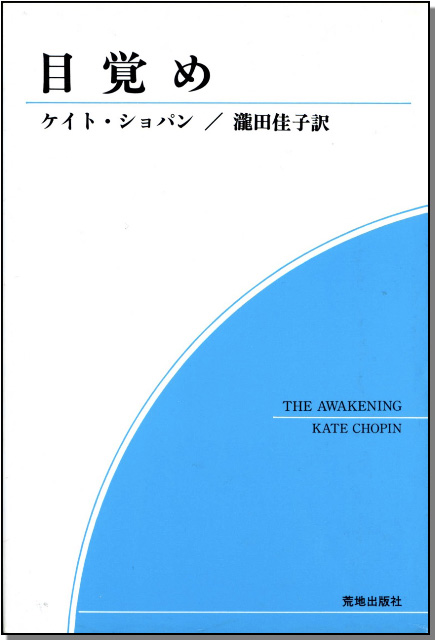
Mariko Utsu of Yonezawa Women’s Junior College adds that there have been three Japanese translations of The Awakening so far, each by a different translator. The one listed above is the second one.
They are, in the order of publication:
Mezame, translated by Kazuko Sugisaki, published by Bokushinsha in 1977.
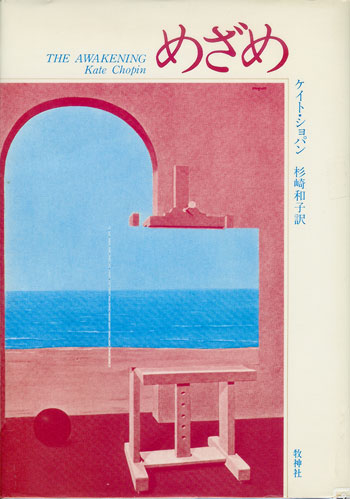
Mezame, the edition above, the one translated by Yoshiko Takita. It also includes “The Story of an Hour,” “Emancipation: a Life Fable,” “At the ‘Cadian Ball,” “The Storm,” and “Désirée’s Baby.”
Mezame, translated by Keiko Miyakita and Keiko Yoshioka, published by Nan’un-do in 1999. This volume also includes “Désirée’s Baby.”
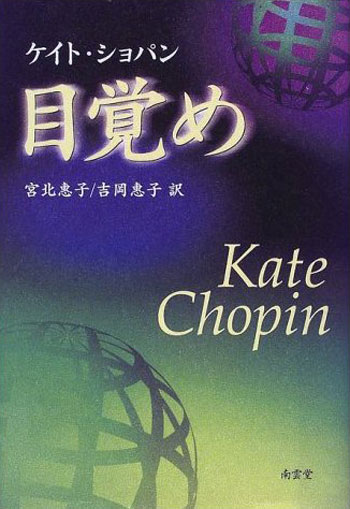
There is also, Mariko tells us, a translation of some Chopin short stories:
Keito Shopan Tanpenshu: Nanbu no Shinsho Fukei (meaning, “A Collection of Short Stories by Kate Chopin: An Imagined Scenery of the South”) translated by Kazuko Sugisaki, published by Kirihara Shoten in 1988. The collected stories are: “With the Violin,” “Mrs. Mobry’s Reason,” “A Harbinger,” “Doctor Chevalier’s Lie,” “Beyond the Bayou,” “Désirée’s Baby,” “Caline,” “An Idle Fellow,” “The Story of an Hour,” “The Kiss,” “Her Letters,” “Dead Men’s Shoes,” “A Pair of Silk Stockings,” “Aunt Limpy’s Interference,” “The Blind Man,” “The Locket,” “Elizabeth Stock’s One Story,” “The While Eagle,” and “The Wood-Choppers.”
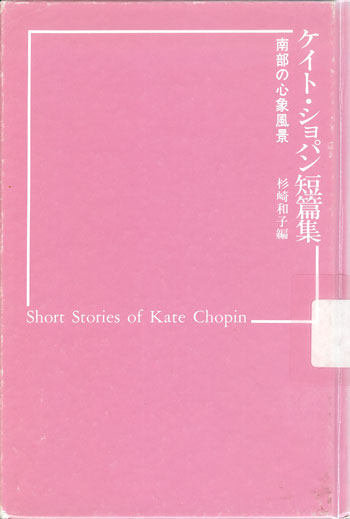
And there is a collection of stories by women. Its title is Onnatachi no Jikan: Rezubian Tanpen Shosetsu Shu (meaning, “Women’s Time: Lesbian Short Stories”), edited and translated by Maki Tonegawa, published by Heibonsha in 1998. The Chopin story this book includes is “Lilacs.”
Antía Veres Gesto, a student of translation at the University of Vigo in Spain, tells us that Kate Chopin’s The Awakening has been translated into Galician.
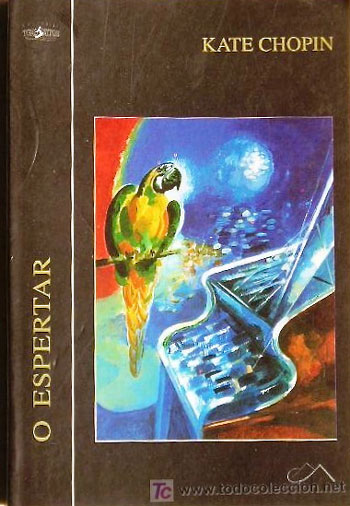
The translation was done by Ana Maria Valladares Fernández. It was published by Toxosoutos, Editorial, in 2003 and is available in both print and digital form. It seems that Chopin is not well-known in Galicia, but, according to reviews, the reception of The Awakening has been positive. The novel is thought of as one of the icons of the feminist movements of the 1960s.
Antía Veres Gesto notes that “it is important for a minority language like ours to become more visible all over the world.”
If you know of a translation into another language, would you contact us?
A New Spanish Translation of The Awakening
Eulalia Piñero Gil has completed a new translation of The Awakening into Spanish. The edition, titled El despertar, is dated 2012 and is published in Madrid by Catedra, Letras Universales.
The new volume includes a 100-page introduction to Kate Chopin and her work as well as a lengthy bibliography.
Eulalia Piñero Gil is Associate Professor in American Literature and Director of the Gender Studies Seminar at Dpto. de Filología Inglesa, Facultad de Filosofía y Letras, Universidad Autónoma de Madrid, Spain.
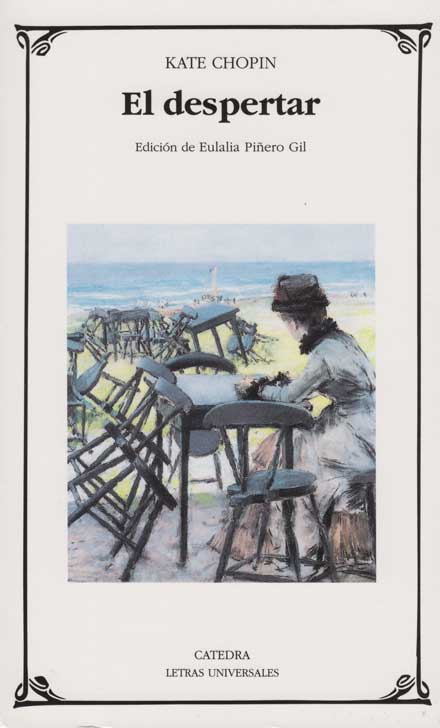
Translations of The Awakening into Swedish and Malayalam
Laurie Gardner in Bucksport, Maine, tells us that The Awakening has been translated into Swedish. The translation, Uppvaknandet, was done by Margareta Lundgren and was published by Forum in Falköping, Sweden, in 1977.
We have learned that the novel has also been translated into Malayalam, a language spoken by about 33 million people in the state of Kerala, on the Malabar Coast in southwestern India. The translation, Uyirppu, was done by Krishnaveni and was published by Kairali Books / Kabani Books in 2012.
